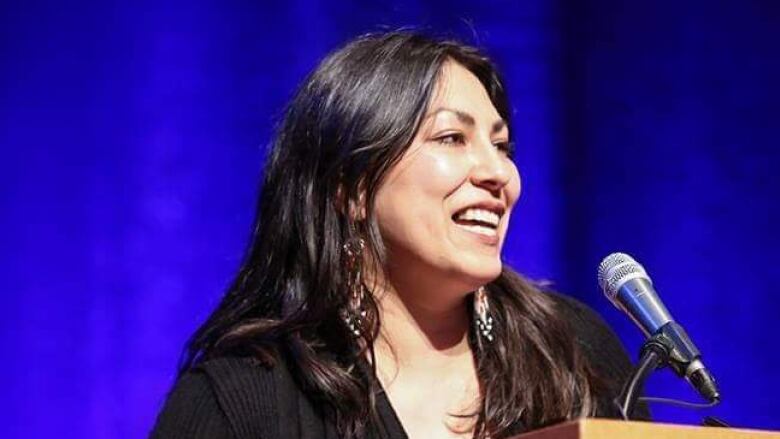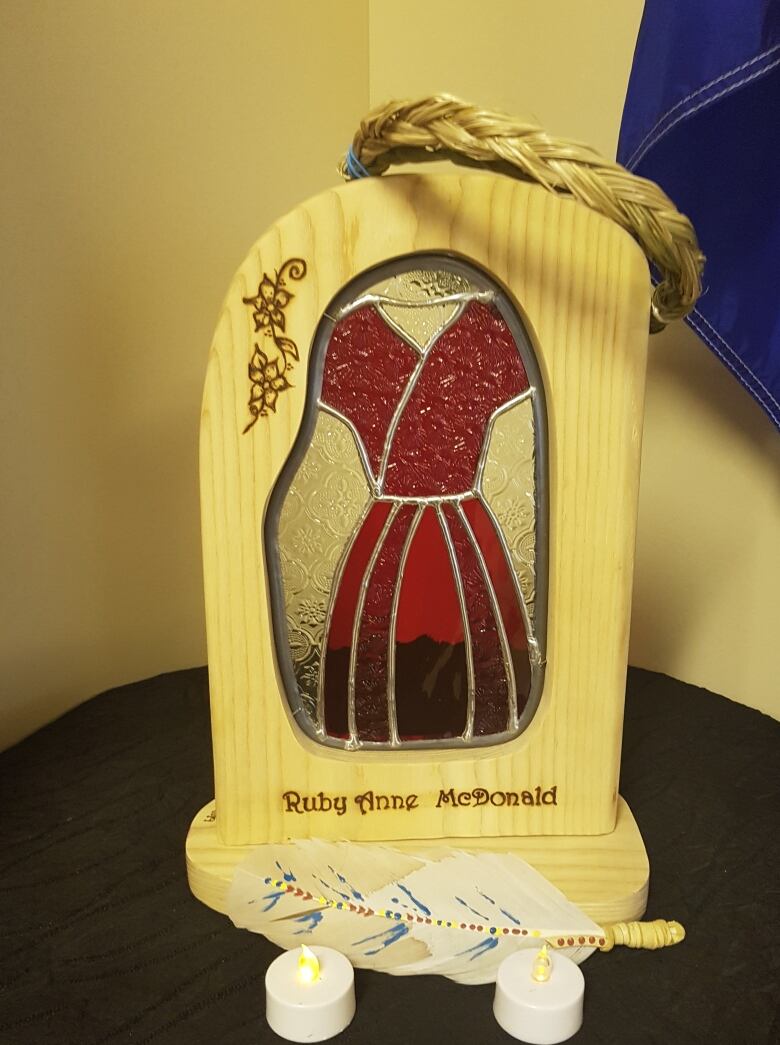Edmonton MMIWG witness agrees with report's use of the word genocide
'Human rights have been violated. Lives have been taken and laws have been broken'

An Edmonton woman who testified at the national inquiry into missing and murdered Indigenous women and girlssaid genocide is an appropriate word for Canada's actions toward Indigenous people.
"Human rights have been violated. Lives have been taken and laws have been broken," said local actress, singer and advocate Stephanie Harpe, in an interview on CBC Edmonton's Radio Active on Monday. "Everything that historically we've been through I just have to say that I do agree with that word."
The 1,200-page report from the inquiry released Monday found that Indigenous women and girls are 12 times more likely to be murdered or to go missing than members of any other demographic group in Canada and 16 times more likely to be slain or to disappear than white women. It described the deaths and disappearances as genocide.
After three years of meetings, missteps and emotional testimony, the release of the report has been emotional for Harpe, whose mother was murdered in Edmonton in 1999.
- 'She was very broken': Edmonton daughter wants answers from MMIW inquiry
- 'High hopes' for MMIWG national inquiry in Edmonton
"I immediately thought of those that we have lost," she said. "I thought of my mother. I thought of my friends. I thought of my cousin."
231 recommendations
The report has 231 recommendations, including the transformation of Indigenous policing and increasing Indigenous representation in Canadian courts.
Having Canada's courts and police departments properly educated about the trauma of Indigenous peoples is one of the recommendations that Harpe is most hopeful about, she said.
"Because once the non-Indigenous public knows the 'why' of our trauma, upon their own moral compass will they choose to be an ally or choose to stay in this systematic racism that we've been involved in for such a long time," she said.
In recent years, Harpe who comes from aCree, Dene andMtisbackgroundhas used her voice as an actor, singer and advocate to inspire people across Canada.
She has been to 11 Indigenous communities since January, sharing her story, and her story has also reached international audiences.
She was sent a red dress carving from an artist in Great Britaindedicated to her motherRuby Anne McDonald. The red dress is used as a symbol to draw attention tomissing and murdered Indigenous women.

"Yes, people are listening and yes, yes they do care," said Harpe.
"You need someone to be at the forefront that is not easily triggered and that can move forward in a good, healthy way," she added. "A lot of our people are still struggling with that and I'm glad and honoured to be the one that is strong enough to keep doing this."
Harpe is both guarded and hopeful that the report's recommendations will be implemented, but she does not feel closure from the report.
"I will have more closure when this country is unified and our Indigenous people are not living in third-world war conditions," she said. "I'll have closure once we're really living as Canadians could live. And being true human beings to one another and really looking at what we have to fix."
With files from Julia Lipscombe












_(720p).jpg)


 OFFICIAL HD MUSIC VIDEO.jpg)
.jpg)



























































































